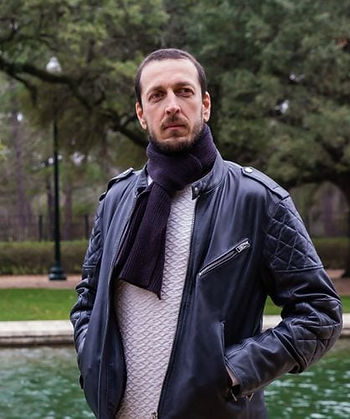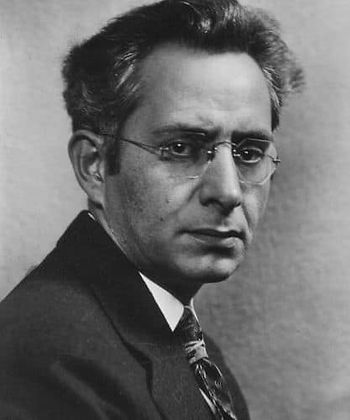
In the realm of classical music, the ability to transcend temporal boundaries and linguistic frontiers is a rare and captivating feat. It is within this enchanting realm that we find “Mayn Shprach: Yiddish Art Songs by Lazar Weiner,” an album that beckons us to embark on a mesmerizing journey. Composed by the prolific Lazar Weiner (1897-1982), this collection of Yiddish art songs transcends the confines of the 20th century, offering a harmonious blend of rich historical influences. It is a profound testament to the enduring legacy of the Yiddish language and the extraordinary ability of performers Mikhail Smigelski and Jeanne Hourez to resurrect these melodies with impeccable precision and heartfelt devotion.
The Voice:

Few voices possess the commanding depth and timbre that Mikhail Smigelski brings to the fore. As the bass-baritone singer on this remarkable album, Smigelski casts a vocal spell that transports listeners to the grandeur of a medieval hall with stone walls, where the echoes of ages past mingle with the haunting melodies of Yiddish art songs. His voice, dark and deep like a fine red wine, exudes an irresistible allure that captivates from the very first note.
Smigelski’s unparalleled mastery of his vocal instrument is nothing short of exquisite. His ability to effortlessly leap across expansive intervals while maintaining absolute precision in pitch is truly incredible. Yet, his gift for imbuing each note with a kaleidoscope of emotions elevates his performance to an otherworldly realm. From the jubilant heights of positivity to the shadowy depths of melancholy, his voice effortlessly traverses the spectrum of human emotion.
The versatility of Smigelski’s voice is on full display in this album. In the track “A Maysele,” his ethereal, floating vocals dance in perfect harmony with the delicate piano line, conjuring a soft and playful atmosphere. Conversely, in pieces like “Broyges,” his voice delves into the depths of the soul, casting an enchanting and haunting spell upon the listener. And in “Di Veyen,” his voice evokes the purity and directness of ancient chants, offering a poignant reminder of music’s timeless power.
The Piano:

Jeanne Hourez, the brilliant French pianist accompanying Smigelski, plays a pivotal role in weaving the tapestry of sound that defines this album. Hourez’s profound understanding of music is immediately evident as her fingers grace the piano keys. She possesses a rare talent for breathing life into the instrument, drawing out a sound that at times feels like a relic of the Renaissance or even the distant echoes of a medieval minstrel’s serenade.
What truly sets Hourez apart is her remarkable ability to align the piano’s voice with Smigelski’s. It is as though she orchestrates a musical riverbed, guiding the flow of notes with grace and precision. Her control over the piano’s tone, dynamics, and emotional expressions is nothing short of uncanny.
Under her skilled hands, the piano morphs from a gentle and introspective ballad in “Ich Hob Dich Shoyn Lan” to a tender cascade of emotions in “A Nigun (Tshiri-Bim),” and finally, to an exhilarating whirlwind of expressions in “Gramen Geshribn in Zamd.”
The Composition:

The composition of the music featured on this album is a journey through time and emotion. Although composed in the 20th century, it possesses a timeless quality that transcends eras. It is a rich tapestry woven from influences spanning from medieval plainchants to classical compositions and late romantic expressions. Performing these pieces is no trivial task; it demands an intimate knowledge of music history and a profound grasp of technical intricacies. Smigelski and Hourez have risen to the challenge with resounding success, breathing new life into Lazar Weiner’s masterpieces and preserving their historical and emotional resonance.
Epilogue:
“Mayn Shprach: Yiddish Art Songs by Lazar Weiner” is a captivating exploration of the human soul through music. Mikhail Smigelski’s extraordinary bass-baritone voice, akin to a medieval hall’s ancient stone walls, harmonizes seamlessly with Jeanne Hourez’s masterful piano accompaniment, creating a musical journey that transcends time and culture. This album is a testament to the enduring power of music to evoke profound emotions and bridge the past with the present. It promises to leave an indelible mark on the hearts and minds of music enthusiasts worldwide, preserving the rich legacy of Yiddish art songs for generations to come.







